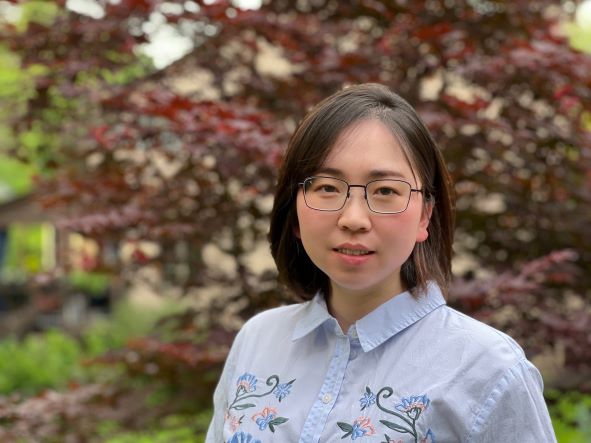Bingjie Wang, an expert in signal and imaging processing for Optical Coherence Tomography (OCT), is the recipient of the 2022 Wiegand Fellowship in Ophthalmology. The $55,000 will support her research project, entitled “In Vivo Cellular Identification of Retinal Ganglion Cell Degeneration and Regeneration in Rats.”
Dr. Wang invented a 3D vessel density biomarker to evaluate foveal ischemia, which achieved high sensitivity in diagnosing diabetic retinopathy at an early stage and shows promising results in other retinal diseases. Having joined the OCT Laboratory in the Department of Ophthalmology at the University of Pittsburgh School of Medicine in June 2022, she plans to develop innovative cellular-based biomarkers for retinal ganglion cells (RGC) and test their usefulness in characterizing RGC degeneration and regeneration.
“We anticipate that the visible-light optical coherence tomography (vis-OCT) can be adapted for human eyes in the near future so that similar studies can be conducted on glaucoma patients or neuroprotection clinical trials to improve the understanding and management of glaucoma in clinics,” Dr. Wang said.
The Wiegand Fellowship was created by Mr. and Mrs. Bruce and Barbara Wiegand to support imaging research in the Department of Ophthalmology.
